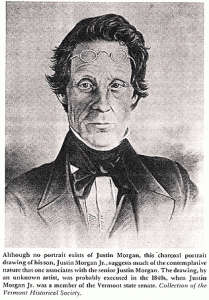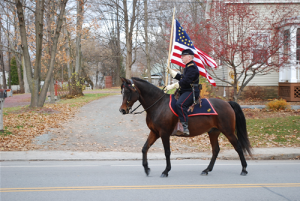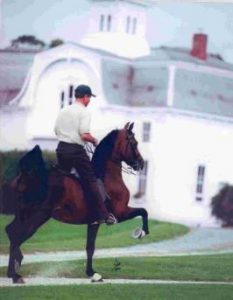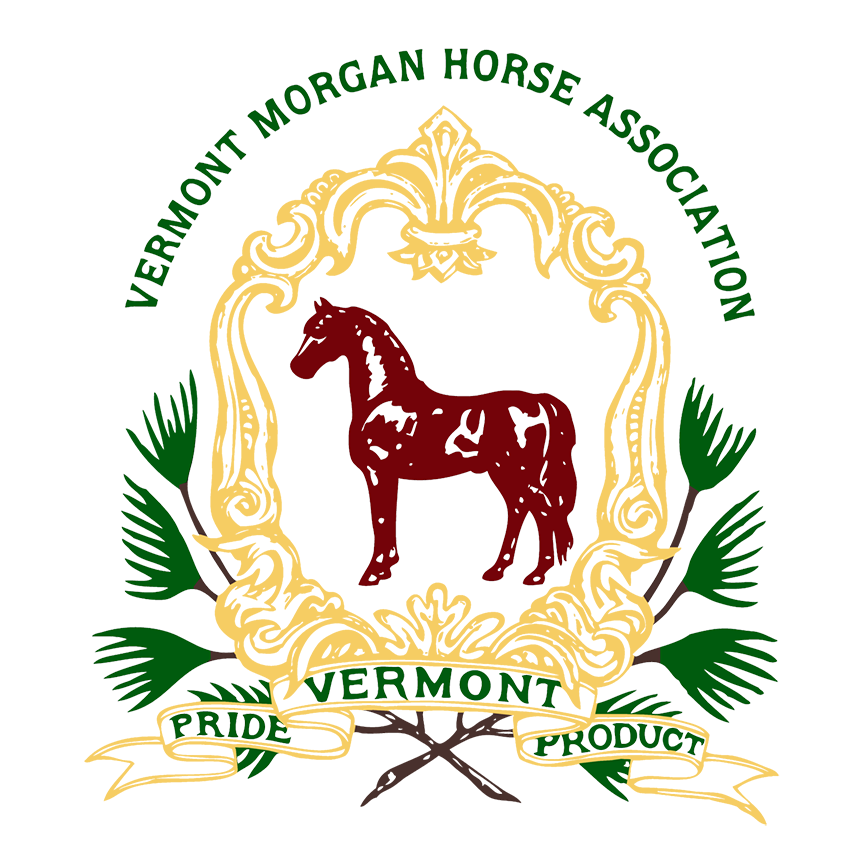Morgan Horse

In 1791 Justin Morgan, a singing school master in Randolph, walked home from Springfield, Massachusetts with a bay 2 year old colt taken for payment of a debt owed to him. That colt he called Figure, who became a legend for his ability to outwork, outrun, out-trot, and out-walk any horse in the area. Over his 30 years of life of which 28 were in Vermont, countless sons and daughters were produced in his image.
Justin Morgan’s horse, now better known by his master’s name, was one of the greatest breeding stallions of all time. He is the only one to establish a breed by himself. The popularity of the Morgan spread across this new nation. Outstanding horses can be found in every generation that was added to his lineage: Black Hawk, for his symmetry and perfection at the trot; Ethan Allen, a champion trotter of the world, renowned in the Racing Hall of Fame and familiar from Currier and Ives prints; and Green Mountain Morgan, winner of premiums and championships as a blood stallion as far away as Kentucky, Ohio, and Michigan. The Morgan horse earned his keep as a general-purpose frontier horse, in teams hauling freight or passengers, trotting races, pulling doctor’s buggies, delivering mail, drawing carriages of presidents and financiers, and even being cavalry horses.

Photo courtesy of Dead Creek Ranch
During the Civil War, the 1st Vermont Cavalry was mounted exclusively on Morgans. Out of 1,000 horses, only 200 returned home after having served the 75 major conflicts. They won a reputation for being the best cavalry and artillery horse.

Photo courtesy of UVM Farm
From 1907 to 1951 what is now the University of Vermont Morgan Horse Farm in Middlebury was
operated by the U.S.D.A. to perpetuate the breed and provide breeding stallions for Remount stations across the country. Some of the most famous endurance horses have been foaled there.
You will find the blood of Morgans in many of the American breeds. This includes the American Saddlebred, the Standardbred, the Tennessee Walking Horse, and the American Quarter Horse. Times have changed and so have the uses of the Morgan Horse, but they have adapted to every need.
